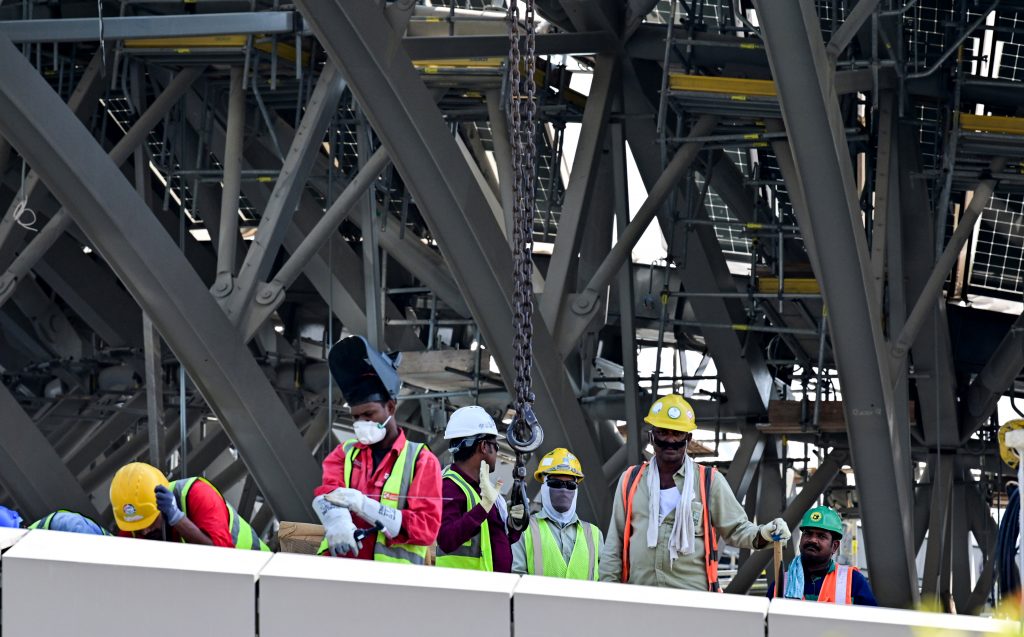São Paulo – The United Arab Emirates could have its fastest non-oil growth since 2016. On a report made public this Wednesday (6), the International Monetary Fund (FMI) forecasted a non-oil growth of 3% in 2020, driven mainly by Expo 2020 and fiscal stimulus.
“Following a challenging period, the economy is recovering. Non-oil growth could exceed 1% in 2019 and pick up to around 3% next year, the fastest since 2016, on the back of Expo 2020 and fiscal stimulus. Overall GDP growth would register 2.5% in 2020,” wrote Koshy Mathai, who lead a recent IMF mission to the country.
Sustaining a robust non-oil growth after Expo 2020 should remain a key priority for the UAE. The event is a universal exposition that the country will host from October 2020 to April 2021 and will drive a high influx of foreigners and tourism spending. Expo 2020 is already contributing to the UAE economy due to expenditures with preparation, including its works (pictured above).
IMF said that promoting the growth of the non-oil private sector is a key priority considering that, over the longer term, the global oil demand will slow in the face of technological advances as well as policy responses to climate change. The IMF team discussed non-oil growth policies with authorities, including small and medium enterprises and strengthening fiscal frameworks to ensure both enough saving of oil wealth for future generations and smoothing of short-term fluctuations.
The report reads that the UAE government has already taken some important steps for developing the non-oil sector, including adopting a foreign direct investment law allowing 100% foreign ownership in selected sectors, and reducing fees. To develop SMEs, the country has taken steps related to lowering costs, insolvency framework, and financial inclusion.
The IMF mission recommended establishing a single agency responsible for SME promotion, with any possible costs to the budget recorded transparently. Another suggestion was reducing the footprint of government-related entities in nonstrategic sectors to promote competition and enhance private-sector growth.
“A fiscal framework is needed that enshrines a commitment to savings, which are currently below the level required to preserve wealth for future generations,” Mathai was quoted as saying in the release. The team leader believes that the fiscal frameworks should be centered around long-term fiscal anchors, while allowing the flexibility to smooth the non-oil business cycle.
Translated by Guilherme Miranda




